William Penn, the founder of Pennsylvania, is best known for establishing a colony based on principles of religious freedom and democracy, but his legacy also intersects with the history of beer making in early America.
William Penn (1644–1718) was an English Quaker and the founder of the Province of Pennsylvania, which later became the state of Pennsylvania. William Penn received the grant to settle Pennsylvania in 1681 from King Charles II of England. This grant was given in satisfaction of a debt owed to Penn’s deceased father, Admiral William Penn, for his meritorious services. Penn envisioned his colony as a place where individuals of all religions could live freely, which was a revolutionary idea at the time. He arrived in Pennsylvania in 1682 with a vision of creating a “Holy Experiment” in governance, promoting peace, freedom, and tolerance.
William Penn had a notable influence on beer making in colonial America, particularly in Pennsylvania, due to his forward-thinking policies and vision for self-sufficiency in his colony. His influence can be traced through several key actions and ideas that helped shape the development of the brewing industry in Pennsylvania and contributed to a broader beer culture in the American colonies.
Beer in Early Colonial America
Beer was a staple beverage in the early American colonies. The brewing of beer dates back to the earliest settlements in Jamestown and Plymouth. It was considered a safe alternative to drinking water, which was often contaminated, and it played a central role in social life.
William Penn saw beer as an important part of daily life and a necessary commodity in the new colony. Breweries were among the first businesses to be established in colonial America, and beer was consumed by all classes, including settlers, laborers, and even children. Penn encouraged the production of beer within Pennsylvania as part of his broader vision for self-sufficiency and economic growth. He wanted the colony to be less dependent on imports from England, which were expensive and often of poor quality after long sea voyages.
William Penn granted land to a beer brewer, William Frampton, around 1683, shortly after the establishment of Pennsylvania. Frampton was one of the early settlers who took advantage of Penn’s encouragement to develop the brewing industry in the colony. According to historical accounts, Penn referred to Frampton as an “able man” who had set up one of the first commercial breweries in Philadelphia.
By encouraging brewers like Frampton to set up operations, Penn ensured that the colony would have a reliable supply of beer. Penn wrote about Frampton’s success in establishing a brew house, noting that he built a brick house alongside it, signaling the brewer’s prosperity. This move also laid the groundwork for Philadelphia to become a major brewing city, not just in Pennsylvania but in all of colonial America.
William Penn’s Interest in Beer
William Penn himself had a direct connection to beer. When he founded Philadelphia, he made provisions to encourage the brewing industry. Penn believed that beer was a wholesome beverage that could be brewed locally, benefiting the colony both economically and socially.
He brought this view from his homeland in England, where beer and ale were common drinks. In fact, in Penn’s writings, he discussed the importance of local breweries and the proper regulation of the brewing industry. One of his goals in establishing Pennsylvania was to promote the production of beer and other local goods to ensure the colony’s self-sufficiency and economic stability.
Penn describes the use of ingredients like molasses, sassafras, and pine in early colonial brewing, alongside traditional malt. Penn himself mentions that the beer in the colony was initially made with these local ingredients, but as malting became more common, malt beer began to dominate. Over time, as barley and hops became more common, the beer brewed in Pennsylvania became more similar to traditional English ales.
Penn’s Personal Brewery
Not only did William Penn encourage others to brew beer, but he also brewed his own. In 1683, Penn built a brew house at his Pennsbury estate in Bucks County, Pennsylvania, located along the Delaware River.
This was common practice among the wealthy, as many estates in the colonies had their own breweries to supply beer for household consumption. Brewing was part of the domestic economy, and beer was often consumed during meals and at social gatherings.
Penn even advertised in England to attract skilled brewers to his colony, seeing the production of beer as a practical necessity for the health and morale of the settlers.
William Penn’s Relationship with Native Americans
Unlike many European settlers who used force or trickery to acquire land, Penn was committed to fair dealings with the Indigenous population. He believed in treating Native Americans as equals and sought to purchase land through negotiation rather than conquest.
William Penn had a unique and significant relationship with Native American tribes, particularly the Lenape (also known as the Delaware Indians). His dealings with them were grounded in mutual respect and fairness, which was quite rare among European settlers during that time.
Shortly after arriving in his new colony in 1682, Penn met with leaders of the Lenape tribe under an elm tree at Shackamaxon, a site near what is now Kensington in Philadelphia. This meeting is commonly referred to as the “Great Treaty,” and although no written treaty survives, it is remembered as one of the most important moments of peaceful diplomacy between settlers and Native Americans.
The essence of the Great Treaty was an agreement to live peacefully side by side. Penn promised that settlers would not encroach upon the Native Americans’ land without purchasing it through fair negotiation. This mutual understanding helped to maintain peaceful relations between the settlers and the Lenape for many years.
As part of the treaty, it is said that Penn presented the Native Americans with various gifts, including items like clothing, tools, and reportedly a barrel of beer. These gifts symbolized goodwill and the desire to establish a lasting, friendly relationship.
Impact on Pennsylvania’s Beer Culture
Penn’s Quaker beliefs shaped his view of beer as a moderate, essential beverage. Quakers, like other colonial religious groups, tended to view beer as a healthier, more moderate alternative to stronger alcoholic beverages like rum or spirits, which were more likely to lead to drunkenness and social problems.
Penn helped foster a culture in which beer was seen as a daily necessity, rather than a luxury. In a 1685 letter, Penn described how beer had become “common” in the colony, with even molasses beer being consumed before local malt beer became more readily available. By promoting the widespread availability of beer, Penn helped integrate it into the fabric of daily colonial life.
Penn’s encouragement of local brewing laid the groundwork for a thriving beer culture. By the 19th century, Pennsylvania, particularly Philadelphia, became a center for American brewing, with German immigrants bringing their beer-making skills and helping establish the state as a hub for lager production.
By laying the foundation for beer production and promoting local brewers, William Penn helped establish Pennsylvania as a brewing powerhouse in the colonies. Philadelphia, in particular, grew into one of the major centers of beer production, rivaling New York and Boston. This legacy continued well into the 19th century when Pennsylvania breweries like Yuengling (established in 1829) became major players in the American beer industry.
Legacy in the Modern Beer Industry
Today, Pennsylvania’s rich brewing history continues, with the state being home to some of the oldest and most famous breweries in the United States, including Yuengling, which was established in 1829. Penn’s forward-thinking approach to self-sufficiency, economic development, and the role of beer in society helped shape the beer culture that still exists in the state.
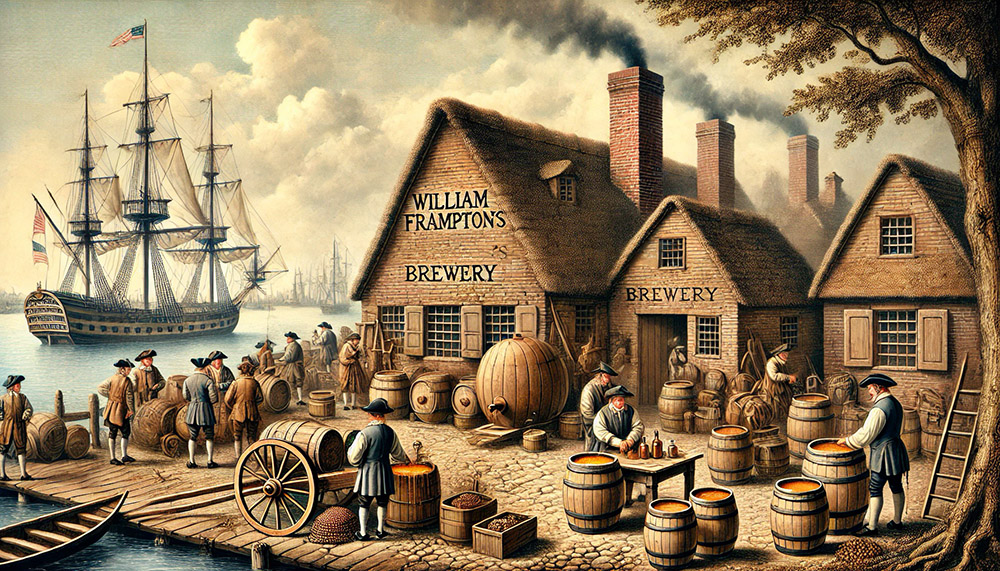
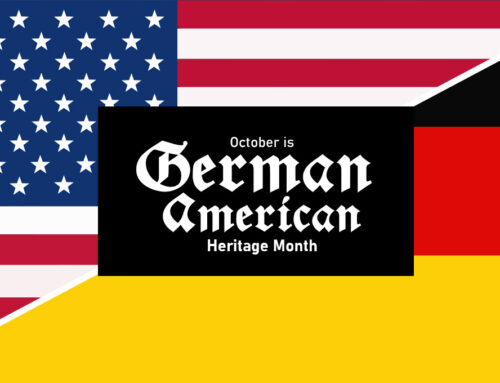
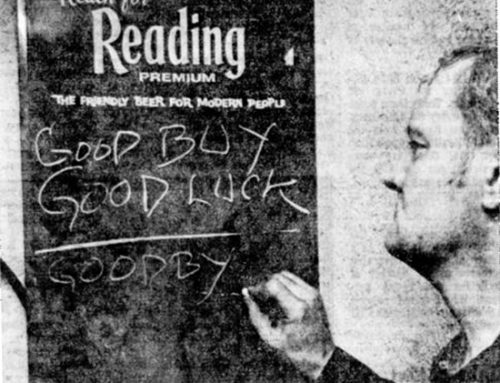
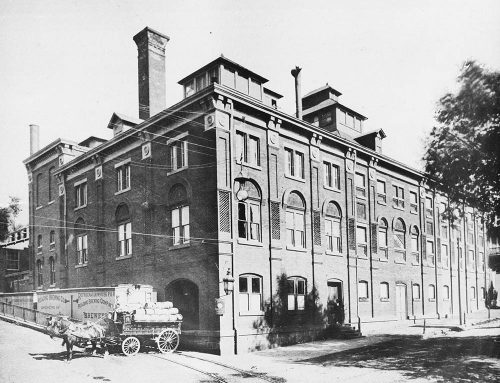
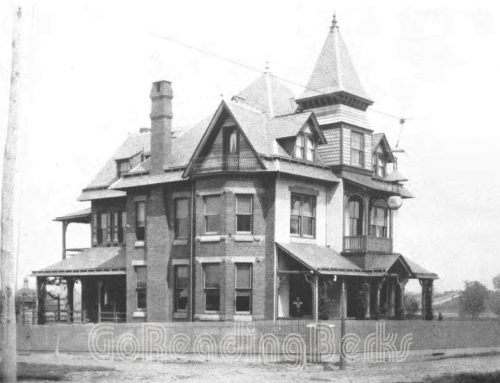

Leave A Comment